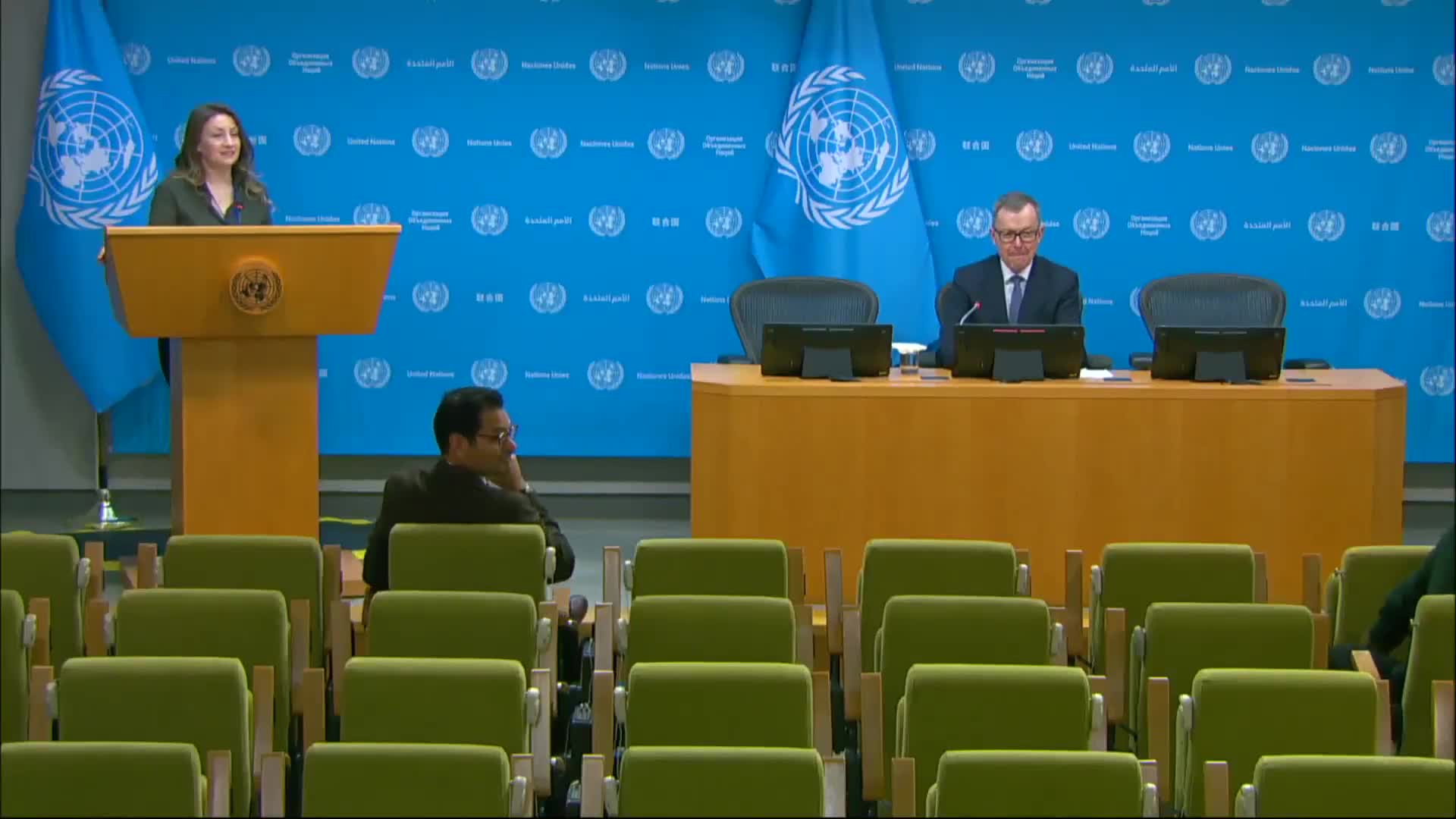Lauber says Human Rights Council is inherently political but defends its role in upholding international law
Get AI-powered insights, summaries, and transcripts
Subscribe
Summary
Ambassador Joerg Lauber said the Human Rights Council’s political character is a fact but insisted that multilateral debate remains essential for protecting human rights.
Ambassador Joerg Lauber, president of the United Nations Human Rights Council, told reporters that the council’s political nature is a fact but that multilateral debate remains necessary to protect human rights.
A reporter asked whether the council is politicized, citing examples including U.S. statements about Xinjiang and weapons supplied to Gaza. Lauber responded: “The Human Rights Council is a political body… Rarely, all the countries who participate in debate agreed as political arguments, differences, positioning, alliance making. So that fundamentally political nature of the debate is a fact.” He added that despite the politics, he still sees the council able to reach consensus and to have “a positive impact still on human rights.”
On international law, Lauber said he is concerned about a trend of disrespect for rules and accountability. “I honestly feel that international law, and in this case, in particular, human rights law, but also on on national level, law is being probably more violated, disrespected these days than it has at some point in the past,” he said. He later framed the council’s work as a responsibility to people and noted that many countries still defend international rules.
Why it matters: Arguments that the council is politicized affect perceptions of legitimacy and can influence whether states engage with or disengage from council processes. Lauber said that would be damaging, because victims and civil-society actors rely on the council as a venue to be heard.
Session highlights: The question period included a reference to remarks by Francesca Albanese, a former special rapporteur, that international law is now “the language of the masses.” Lauber echoed the idea that responsibility is to rights-holders and added that situations such as those in Sudan require continued attention.
What was not established: The briefing recorded no change to the council’s procedures and no formal action to depoliticize debates; Lauber described the political character of deliberation as structural rather than a procedural failing.
Ending: With no online questions, the briefing closed after the ambassador took additional questions and offered concluding remarks.
